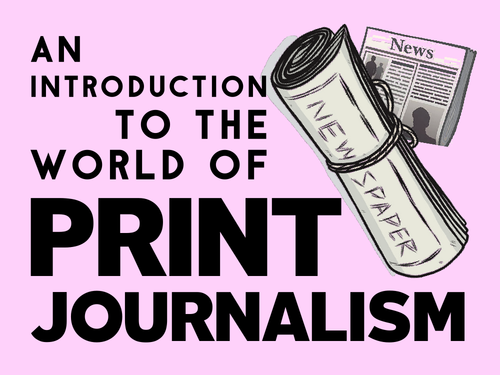By: Sahid Bangura
The Print-Desk, which implies the practice of Print Journalism, is one of the oldest types of media. Newspaper penetrated in the media landscape through the invention of the printing press machine around 1436, by German Goldsmith Johannes Gutenberg. The Print-Desk was one of the most influential ways of reaching the public; it had control over audience due to its richness in content, context, and ethical standards. However, in recent years, so many lines have been drawn, highlighting the pitfalls of newspaper production. Some authors who have closely observed this type of media and its lacuna, have noted that its pitfalls are as a result of the influence of media ownership, some propounded that it is the lack of transparency, and others put forward “gatekeeping” as the major cause of the hindrances in newspaper production.
As fast forward to the Sierra Leone media landscape, in regards with the print journalism, although its content is still maintained, and even seems improving, but its context seems diminishing. Considering the grammar being carried by some newspapers, it clearly depicts that a good number of news producers around the print desk are incompetent, academically deceitful, and are ignominy to erudite journalists at the Print-Desk. From different angles, having observed the print journalistic practices, focusing on news production in newspaper, I have spotted three factors with which I am convinced that they are negatively affecting the production of news.
Among the three factors, I highlighted the feeble relationship between management and its reporters in newspaper as one affecting the production of news. The proper management of reporters is the prerequisite for every newspaper outlet seeking high and quality standard in news production. Reporters are used to overseeing the entire production line, and they are such personnel upholding the growth of every newspaper; they pitch, they interview, they write, they edit, and sometimes they even write headlines.
However, in the Sierra Leone media landscape, reporters from most newspapers are giving less privilege to question management decisions. Some of the decisions of that Management often make the duty of reporters cumbersome, leaving them with no other option but to comply. Management seldom associate or officially meet with its reporters for strategic plan discussions; reporters are the most sociable personnel of every newspaper, they play a great role in building the image of the outlet, hence, they deserve not only editorial meetings, but management board discussions, for they can easily help to detect the strengths and weaknesses of the newspaper.
Thus, editors in most newspapers are inflexible with their reporters. This is another limb of the factors affecting news production in plethora newspapers. Editors should initiate activities that would improve the ability of collaborative efforts in maintaining the movement necessary for carrying out daily tasks. On the contrary, most editors from this part of the world often overemphasize their superior role over their reporters, which do not seem right. Most often, they assign too much workload to reporters, creating tension around them, and at the end of the day, leaving the stories unpublished due to a reason best known to them. The agony of reporters in exercising their duties is indescribable. Imagine a committed and ethically minded reporter in a field chasing stories here and there, encountering embarrassments, insults, disappointment, and lawful threats; at the end of the day, his story just get trashed without making the reason known to the reporter; it is so heartrending. However, when a story seems faulty, incomplete, or unstructured, it is the duty of every editor to ensure it gets edited and published, except otherwise.
The unprofessional practice of reporters in newspaper houses is the third negative factor of my observation. Management should uphold reporters abreast to the ethical standards of reporting for they are the sources of news on whom newspaper house rely for stories, and image building. So, the management of every newspaper house should ensure that reporters are always council, cautioned, and reminded of the laws and ethical standards of reporting. Most reporters in Sierra Leone are unqualified journalists who barely know the laws and ethical standards enshrined in journalism.
I blame not the unprofessional reporters in the field, but the newspapers who are undermining the professional requirements of journalism by recruiting unqualified staffs in their newspaper houses. Based on further observation, I have noticed that there is no serious requirement involved in the establishment of newspaper house, which has led to the hike in unprofessional newspaper houses in Sierra Leone. However, it is the expectation of every newspaper house, especially the editors to ensure that professional standard of newspaper houses is maintained.
In conclusion, as newspaper in this part of the world is still being read by a wide range of people in the country, it would be of great advantage if the newspaper owners endeavour to filter their media houses ideally. Newspaper owners should note that the new technology is in its full force, and it has so much development to show to the world in the near future; so, the only hope the newspaper has in this digital age is, to maintain the professional standards of not only news reporting, but of journalism as a whole, so as to conserve trusts with its readers. The aforementioned assertions, if considered and put into consideration would evolve the practices of reporters and other journalists from diverse fields in the media.














